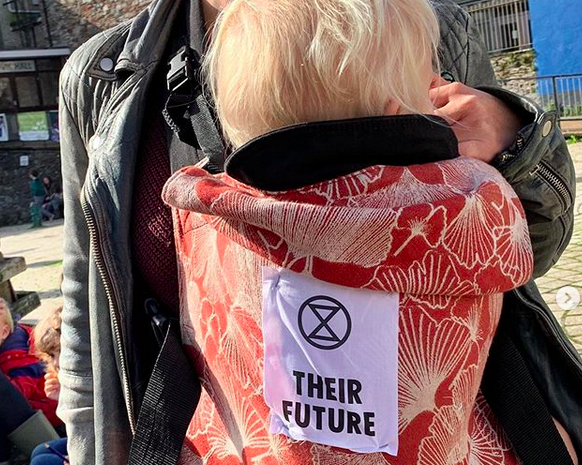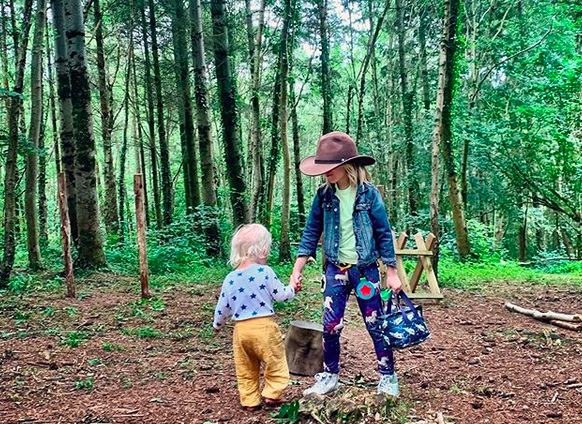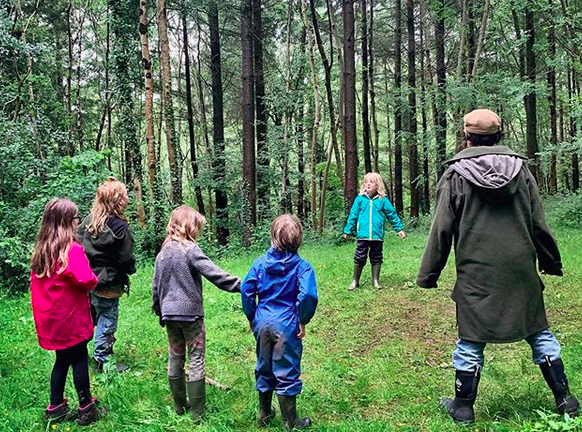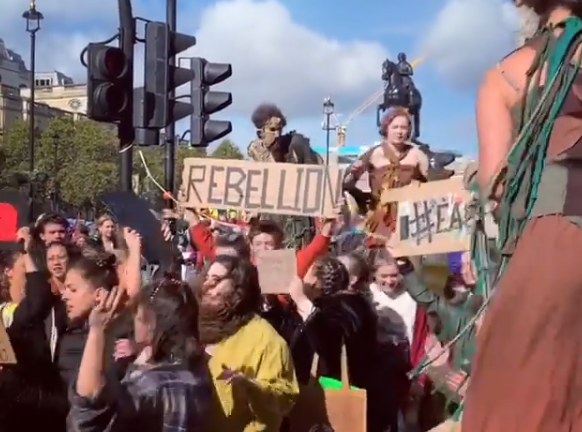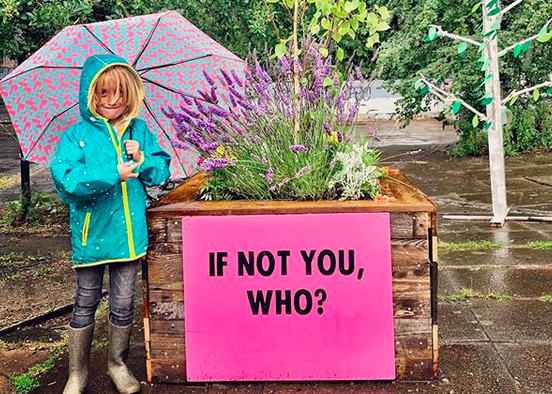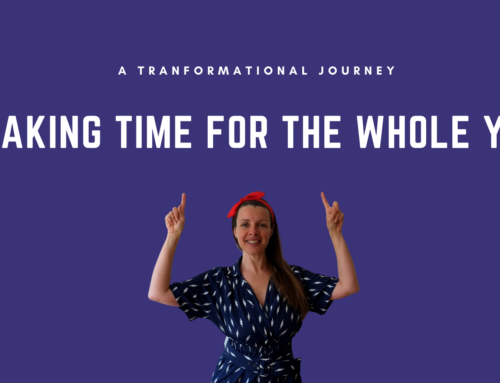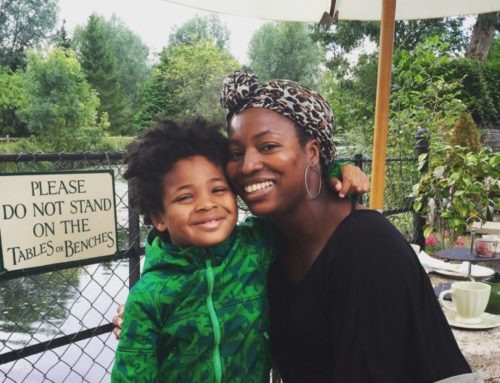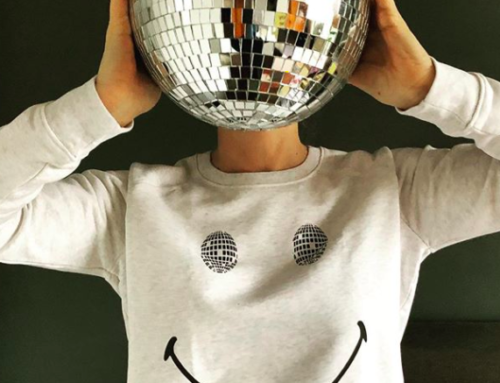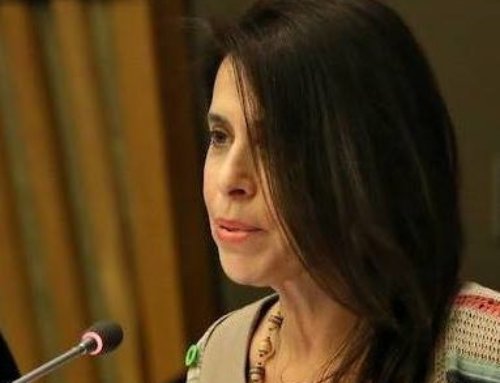As I write this interview many people are gathering with Extinction Rebellion in London to protest about the climate crisis and highlight the government’s need to take action. What is so amazing about this movement is the huge amount of families involved. Today I interview blogger Raising Revolutionaries aka Sophie Lovett who is at the protests with her two young children.
Hi Sophie, Welcome to No Mum Is An Island. I am a great believer that no mum (or dad) should have to do everything herself, we can’t possibly know it all, and we need all the support we can get, there is a wealth of information out there to help us upgrade our parenting experience, to make our lives easier and this website is a hub for just that! You have upgraded your life and that of your children by standing up for what you believe in around climate change rather than just standing by and watching.
Can you tell us why you feel so passionately about the climate crisis and what made you decide to take action?
Like most people my age, climate change has been on my radar since my childhood, but I had been lulled into a false sense of security that as long as we made the right steps towards more eco-friendly living we would be able to avert a major crisis. The IPCC report released last October shows this to be patently untrue and makes it clear that drastic action is needed within the next decade if we are going to avoid environmental collapse.
As a human this is terrifying, but as a mother, it is doubly so: the impact of the climate and ecological crisis is already being felt in the global south, and if we do not urgently act to reverse the damage we have done to the planet the repercussions for our own children will be devastating.
For me Extinction Rebellion came along at exactly the right moment. The movement embodies the systemic change our society so desperately needs, making the link between climate justice and social justice and recognising the importance of building community and taking back control of our own stories to build a better future for our children.
You make a great post on your blog “feeling that anything you do is insignificant, that you are too small to fight the huge battles that need fighting.” what would you say to the many families who feel this way?
I think there is a huge amount of shame and fear involved in peoples’ responses to the climate crisis: fear that the challenge ahead is insurmountable and that the consequences of inaction are too huge to comprehend, shame that the way we have lived our lives so far has contributed to this crisis and continues to do so. It is these emotions that I think paralyse people and prevent them from taking action, causing a huge amount of stress and anxiety and making us feel increasingly disempowered.
We need to recognise that we are living in a toxic system, one which makes it incredibly hard to make environmentally conscious choices – they’re either more difficult or more expensive, and often both. In order to really affect change we need to join forces to turn that system round and make it work in a way that is healthy for us and our planet.
Find the people in your community that want to make a difference and use your collective power: write letters, join protests, lobby local politicians. Find the specific projects that speak to your heart and get involved – whether its tree planting, food growing, zero waste, nature education (to name just a few). There are so many strands to this movement and there will definitely be one that is right for you.
What can we as families really do to support the change to reduce our environmental impact?
There is a lot we can do as individuals, and exactly what that looks like will be different for each family. For us this year its included fitting solar panels, growing more of our own food, reducing our consumption of meat and dairy, switching to an electric car, saying no to fast fashion and deciding to only fly when it feels completely necessary.
All of these things are already reducing our carbon footprint, but individual action will only take us so far. We need to save a significant part of our energies to focus on the bigger picture, because that really is where change needs to happen.
How can we educate our children about the climate and ecological crisis?
With children, I strongly believe that the first step in encouraging them to become guardians of our planet is to empower them to truly love nature. And this means in the first instance getting outside in nature as often as you can – be it a local park or beach or woodland, even your own garden.
If you have access to a forest school in your area then so much the better – I have learned so much about the natural world through my eldest’s adventures in outdoor learning. And for my youngest, spending at least a couple of days in the woods each week, whatever the weather, is just a matter of course. He’s only just turned two, but he is at home with mud and leaves between his toes, listening to birds singing in the trees above as sunlight dapples through the leaves. I get the sense that he really feels a part of nature – as of course we all are – and I think it’s that foundation that will stand him in good stead to be an earth protector as he grows older and more powerful.
The other foundation children need is in building their resilience and sense of self-efficacy. They are facing an uncertain future, and we need to make them feel as safe as we can in the face of it. That means using a range of strategies to build strong attachment in the early years and continuing to be a supportive and non-judgemental ally as they grow. It also means addressing our own anxieties about the state of the world and shielding them from those as much as we can.
That is not to say that we should shy away from discussing the issues with them – far from it. I am a big advocate for keeping lines of communication open, and I would far rather my sons learned about the crisis we are facing from me than overheard it somewhere else. I tend to take their questions as a starting point, and our involvement with Extinction Rebellion has provided a wide range of stimuli to take our conversations further.
What advice would you give to other parents who may wish to take their children to rallies and marches but that have concerns for safety?
It’s a valid concern, and going back to my point above I would say that if rallies and marches make you anxious as a parent then it is perhaps not the best way to engage in environmental activism with your children. Having said that, children are very much at the heart of the current wave of climate protests and there is a huge amount of work being done to make events safe and welcoming.
The Fridays for Future school strikes movement is led by teenagers and young adults following in the footsteps of Greta Thunberg and often supported by more experienced activists. This, in turn, inspired ten year old Elsie Luna to set up XR Kids, aimed at 8-12 year olds with the support of their parents.
Parents of younger children can look to XR Families for support and inspiration, with active groups set up across the UK and beyond. As well as seeking to provide safe ways for younger children to engage in climate activism these groups also create communities of adults who share similar concerns and work to find solutions. The main Facebook page provides a wealth of information and resources and will direct you to your local group where you can meet face to face and get involved in a way that works for you.
Is there anything else you want to share with parents who want to upgrade their lives by being more environmentally conscious?
One of the keys to this, as with so many other things, is knowledge. There are a lot of powerful forces in the world for whom the realities of the climate and ecological crisis are potentially costly, meaning that the truth of the situation we are facing has yet to filter down to the majority of people. Extinction Rebellion offer a powerful and thought-provoking talk titled Heading for Extinction – as well as being available online it is regularly delivered in community venues around the UK.
For me a lot of inspiration has come from books I have read this year (or more often listened to on Audible). I would particularly recommend ‘Out of the Wreckage’ by George Monbiot and Joanna Macy’s ‘Active Hope’ – and am planning to pull together a more extensive reading list on the blog soon.
It is no accident that Extinction Rebellion’s first demand is for governments and media outlets to ‘Tell the Truth’ – and one of the first steps we need to take as parents is to admit the truth to ourselves, however daunting that prospect might be.
And there is no doubt that this environmental crisis that we’re facing is pretty daunting, which is why my final essential piece of advice would be to look after yourself as you let it into your life. Regenerative culture is an absolutely central part of Extinction Rebellion, with supportive strategies built into the structure of the movement. Don’t try to face this alone – find a community of people to share the burden with you. And as much as I would urge you to carve out time to engage in activism, you need to carve out the time to practice self-care, too – whether it’s yoga, spending time in nature, or sharing food with friends. We are in this for the long haul, and if we are going to succeed in nurturing our planet back to health then we need to ensure we continue to nurture ourselves.
You can follow Sophie’s blog Raising Revolutionaries and you can find her on Instagram and on Facebook and Twitter

